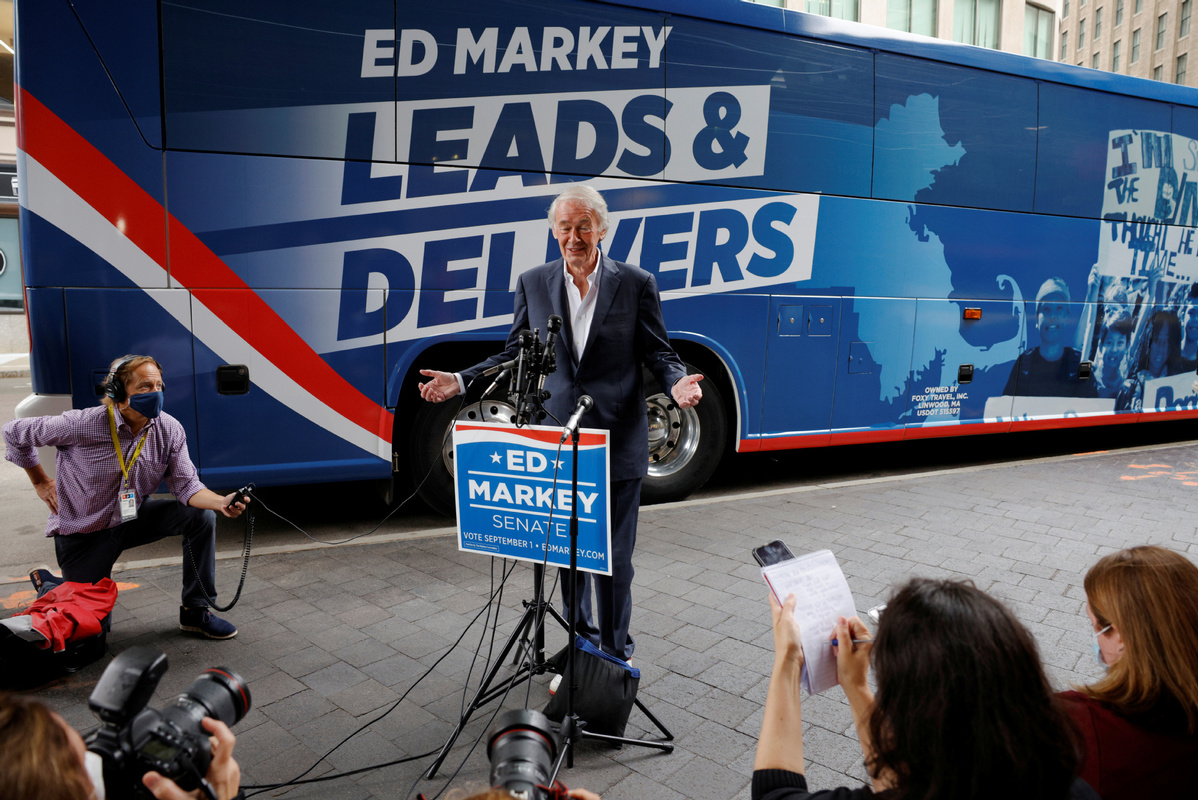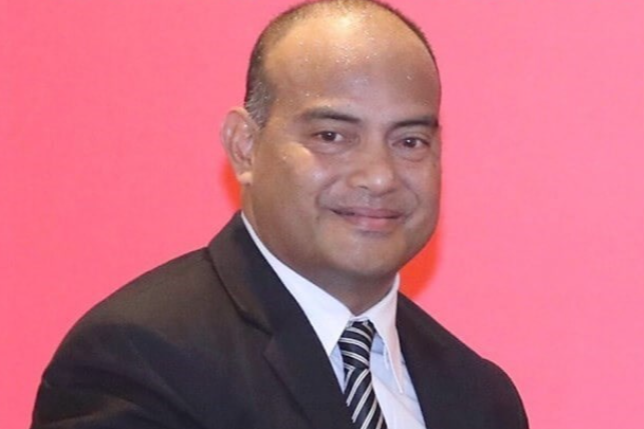Senator hands a Kennedy historic defeat in primary


At one point he was down by double digits in the polls, but Democratic US Senator Ed Markey did the unprecedented — he defeated a Kennedy in a Massachusetts election for the first time.
For the 74-year-old incumbent, who was elected to the House before the 39-year-old Joe Kennedy was born, the win on Tuesday means he advances to the November general election to seek six more years in the Senate.
For Kennedy, the grandson of the former US attorney general Robert F. Kennedy and Ethel Kennedy, it means he will be out of Congress because state law prohibits him from running for re-election to his House seat and in the Senate primary at the same time.
Markey received 55.6 percent of the vote to Kennedy's 44.4 percent.
Markey built a strong coalition among young progressives and gave them credit for his victory, especially New York Representative Alexandria Ocasio-Cortez, who endorsed him. He featured her prominently in an ad and played up their joint authorship of the proposed Green New Deal.
Speaking from his hometown of Malden after Kennedy conceded, Markey acknowledged the young people who he said energized his winning campaign.
"Tonight is more than just a celebration of a movement; it is a reaffirmation of the need to have a movement — a progressive movement of young people," he said.
In a tweet Wednesday, President Donald Trump claimed Kennedy's defeat represented evidence that the Democratic Party has been taken over by the "radical left''.
The primary race saw national Democratic leaders divided in their support. Senate Minority Leader Chuck Schumer from New York backed Markey. House Speaker Nancy Pelosi from California supported Kennedy.
Political analysts of the race noted that Kennedy rarely embraced his family legacy for much of the campaign.
They said it wasn't until Markey made a few references to the Kennedys and released a video in which he repurposed perhaps John F. Kennedy's most famous line that Kennedy invoked his relatives in speeches and a commercial.
"Ask not what your country can do for you, ask what you can do for your country,'' Kennedy said in his 1961 inauguration speech. Markey took that comment by young Kennedy's great uncle and ended a campaign video with, "With all due respect, it's time to start asking what your country can do for you.''
In his concession remarks, Kennedy called Markey "a good man" while hinting at some of the bitterness over the senator's referring to Kennedy's forebears. Addressing his family and noting that their "name was invoked far more often than I anticipated in this race", Kennedy said: "You are my heroes."
Markey basically rebranded himself as part of the millennial left and said Ocasio-Cortez's endorsement provided the validation for that approach.
"When she said, 'It's not your age but the age of your ideas,' when she said that Ed Markey was the generational change that we have been waiting for, it helped to make clear that in this race I am the youngest guy because it's about ideas," Markey said.
"Markey has done a very skillful job of reinventing himself," said former representative Barney Frank, who served for decades with Markey and was succeeded by Kennedy but supported neither. "It turns out being named Joe Kennedy is a mixed blessing," Frank said.
During the campaign, Kennedy tried to portray Markey as out of step with the party's progressives. He criticized Markey for his support for the 1990s-era crime bill, the Iraq war and the Patriot Act, and for his early opposition to the integration of Boston's schools.
"All of these votes are what the left has held vice-president Biden to account for," he pointed out.
He pointed to his strength with working-class Democrats and voters of color, who are bearing the brunt of the coronavirus pandemic.
Markey had a considerable financial advantage at the end of the race. He outspent Kennedy nearly 4-to-1 advertising in the Boston market in the final week of the campaign.

































